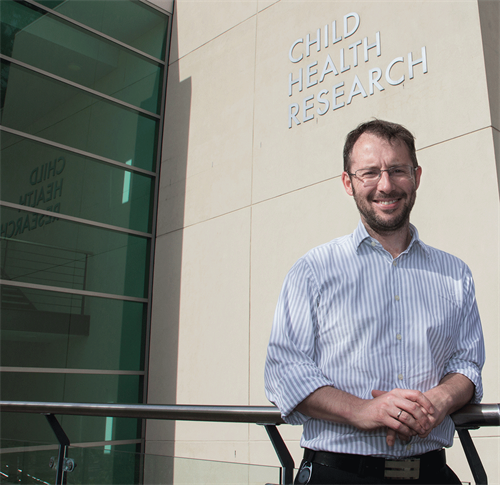Search
Research
Otitis-prone children produce functional antibodies to pneumolysin and pneumococcal polysaccharidesThe production of functional antipneumococcal antibodies in otitisprone children demonstrates that they respond to the current pneumococcal conjugate vaccine (PCV)and are likely to respond to pneumolysin-based vaccines as effectively as healthy children.
Research
Meningococcal serogroup B-specific responses after vaccination with bivalent rLP2086Assessment of the persistence of bactericidal antibodies up to 4 years after a three-dose schedule of bivalent rLP2086
Research
No evidence for impaired humoral immunity to pneumococcal proteins in Australian Aboriginal children with otitis mediaConserved vaccine candidate proteins from S.pneumoniae induce serum and salivary antibody responses in Aboriginal and non-Aboriginal children with history of OM
Research
Understanding motivation and experience in participating in a paediatric SARS-CoV-2 serosurvey, in AustraliaSerosurveys are considered as a valuable tool in estimating population immunity and infection rates but recruitment of children to provide paediatric estimates can be challenging. A novel approach of sampling children undergoing anaesthesia was utilised for a SARS-CoV-2 serosurvey in Australian children and we explore the reasons for participation, feedback on the approach and importance of research into Coronavirus Diseases 2019 (COVID-19).
Research
Ontogeny of plasma cytokine and chemokine concentrations across the first four months of human life in a Papua new Guinean cohortDynamic molecular changes in early life follow a robust ontogeny as the infant immune system adapts to the demands of its new environment. Studies of plasma immunomodulatory cytokines and chemokines have previously demonstrated ontogenetic patterns of immune development across the first week of life. However, how plasma cytokine and chemokines concentrations evolve over the first 4 months of life remains unknown.
Research
Respiratory Syncytial Virus Strain Evolution and Mutations in Western Australia in the Context of Nirsevimab ProphylaxisNirsevimab is a long-acting monoclonal antibody used to prevent respiratory syncytial virus (RSV) infection in infants and high-risk children. During the 2024 RSV season in Western Australia, 21 922 doses were administered to infants entering their first season and 1221 doses to at-risk children. In this context, the selection and spread of escape variants are a potential concern. This study aimed to investigate nirsevimab binding site mutations using clinical and wastewater data.

News & Events
New meningococcal strains bring increased risk in WAA new study has confirmed the changing pattern of meningococcal disease in Western Australia.

News & Events
Whooping cough vaccine could be a new weapon in the fight against food allergiesResearchers from The Kids Research Institute Australia and Curtin University will use a $3.9 million grant from the National Health and Medical Research Council to investigate whether a type of whooping cough vaccine could provide bonus protection against food allergies and eczema.
Research
COVID-19 vaccination in children and adolescents aged 5 years and older undergoing treatment for cancer and non-malignant haematological conditions: Australian and New Zealand Children’s Haematology/Oncology Group consensus statementThe Australian Technical Advisory Group on Immunisation and New Zealand Ministry of Health recommend all children aged ≥ 5 years receive either of the two mRNA COVID-19 vaccines: Comirnaty (Pfizer), available in both Australia and New Zealand, or Spikevax (Moderna), available in Australia only. Both vaccines are efficacious and safe in the general population, including children. Children and adolescents undergoing treatment for cancer and immunosuppressive therapy for non-malignant haematological conditions are particularly vulnerable, with an increased risk of severe or fatal COVID-19.
Research
Immunogenicity of the inactivated influenza vaccine in children who have undergone allogeneic haematopoietic stem cell transplantThis study provides evidence to support annual inactivated influenza vaccine administration to children following allogeneic haematopoietic stem cell transplant
